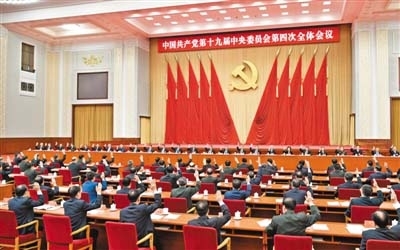Even as China’s economy expanded by an impressive 18.3 per cent in the first quarter, uncertainty over the growth of its private sector after the ugly faceoff between billionaire poster boy Jack Ma and the Chinese authorities has posed several challenges for the country.
One of the biggest short-term challenges is employment generation, which in turn affects domestic consumption.
“The problem with China is somewhat self created. It does not know how to handle its private sector,” Subhomoy Bhattacharjee, Senior Adjunct Fellow at RIS (Research and Information System for Developing Countries) told India Narrative.
Bhattacharjee added that the private sector companies need to be able to grow to contribute handsomely to the economy. “However, we see that the Chinese government has actually gone after the fintech companies. That will lead to an immediate challenge for the economic growth of the country,” he said.
An International Finance Corporation (IFC) report noted that an important outcome of market-oriented reforms in China over the past 20 years was the emergence of a significant private sector. Initially allowed only on the fringes of the economy, the private sector is a main pillar contributing about a third of the country's gross domestic product.
While the public sector has now increased its hiring activities to address the problem of unemployment, the private sector accounts for 80 per cent of the urban jobs.
In short, squeezing the private sector would in turn choke the economy.
China was the darling of all investors till the outbreak of the Coronavirus pandemic. However, things have taken a sharp turn and the controversy around Alibaba and Ma has been a warning to other private sector companies.
Shakti Sinha, director, Atal Bihari Vajpayee Institute of Policy Research and International Studies, MS University said that Ma episode would serve as a message to the business community.
“Though China has created a conducive business environment, it essentially needs managers and not entrepreneurs. If this can happen to Ma, who is no ordinary person, then this can happen to anybody. The larger message for businesses is that they need to exercise extreme caution,” Sinha said.
Also read: Is China's debt trap policy set to boomerang?
Statista—the data collation platform highlighted that in April 2021, the surveyed unemployment rate in urban areas of China ranged at 5.1 per cent, slightly down from 5.3 per cent in March 2021.
While this is lower than the 6.2 per cent recorded in February 2020 when the country’s economy was hit by Covid 19 induced lockdowns, this is much higher than the comfort level.
That apart, unemployment rate in the rural areas is even higher.
In fact, Chinese Premier Li Keqiang in a recent meeting reportedly expressed concerns over the country’s economic roadmap saying that “a slew of challenges from job creation to government red tape and low efficiency in spite of a strong recovery in the first quarter” remain to be resolved.
What is the Jack Ma controversy?
It all started with Ma’s open criticism against the Chinese regulatory authorities. In November, Ma’s Ant Group, an affiliate company of the Chinese Alibaba Group had to abruptly suspend its initial public offering (IPO) — barely two days before it was slated to hit the market. Since then, Ma and his companies have been caught by the regulators’ ambit.
A BBC report described Alibaba as the “grandfather of China's tech industry” which dominates the marketplace there with over 800 million users in the country alone.
“Companies like Tencent, JD.com, Meituan, Bytedance and Pinduoduo are all looking at Alibaba's experience, and trying to avoid crossing any red lines set by Beijing,” the report said.
Is Alibaba's fate a warning to China’s tech giants?
The BBC report also said that the moves are seen to be political.
“They are an indication that under President Xi Jinping, nothing can be bigger or more powerful in the lives of ordinary Chinese people than the Communist Party,” it said.




















